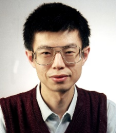| Moderator |
Professor Wan Fayu |
Time |
September 24, 2024 15:00-16:30 |
| Address |
Electromagnetic Building 1 / F conference room |
|
|
Title: Fresnel Zone and Simplified Prediction methods for Radio Wave propagation
Speaker: Professor Zeng Qingsheng
Report time: 15:00-16:30, September 24, 2024
Presentation location: Conference Room, 1st Floor, Electromagnetic Building
Moderator: Professor Wan Fayu
About the Speaker:

Prof. Zeng Qingsheng graduated from University of Ottawa in Electrical Engineering, Canada. He is currently a professor and doctoral supervisor at the University of Quebec Capital, Canada, and an adjunct professor and doctoral supervisor at the Center for Energy, Materials and Communications, University of Ottawa, Carleton University, and National Research Institute, Canada. He was a senior research engineer at the National Communications Research Centre of Canada. He has long been engaged in research and training talents in the fields of aircraft antenna analysis and design, electromagnetic compatibility and electromagnetic interference, ultra-wideband technology, radio wave propagation, computational electromagnetics and so on. He is a senior member of the Institute of Electrical and Electronics Engineers (IEEE), President of the Joint Association of Antenna and Wave Propagation/Microwave Theory and Technology, Ottawa Branch, member of the National Natural Science and Engineering Foundation of Canada Major Project Review Panel, member of the Industrial Research Principal Project Site Visit Committee, and reviewer of the Industrial Research and Development Postdoctoral Fellowship. He has published more than 200 SCI and EI papers, one academic monograph, and two chapters in two other academic monographs. His research results have been listed as important contributions to the International Telecommunication Union (ITU), and formed part of the consultation report of Spectrum Management and Telecommunication Policy of Industry Canada on the introduction of wireless systems using ultra-wideband technology. He is the editorial board and reviewer of many international technical journals and books, the organizer, branch chairman, technical committee expert and reviewer of several major international conferences, and has been invited to give thematic, invited and special reports at major international conferences. Professor Zeng has won a number of academic awards and technical service awards. In 2011, he was named the most influential Researcher of the National Center for Communications Research of Canada. In 2015, he was selected as the Special Expert of Shanxi Province Hundred Talents Program, in 2020, he was selected as the Huashan Scholar Chair Professor of Xidian University, and in January 2023, he was selected as the Special Expert of China Association for Science and Technology Haizhi Program. In December of the same year, he was elected as a member of the council of the Association of Academicians and Experts of Jilin Province.
Report Summary: The physical concept of Fresnel zones and Fresnel Kirchhoff theory or physical optics (PO) form the basis for solving diffraction problems on terrain or buildings, especially when the terrain or building can be modeled as a knife edge. The original formulation of physical optics is not commonly used in the development of related algorithms and software because the numerical integration required to solve practical problems is time consuming. For computational efficiency, some assumptions and simplifications are made based on the Fresnel zone. This report briefly reviews the physical concepts of Fresnel zone and Fresnel Kirchhoff theory, explains and clarifies the assumptions and simplifications made to improve the computational efficiency, analyzes the performance of the algorithm by comparing prediction with measurement, discusses the inherent shortcomings of the algorithm and its limitations in applications, and proposes possible improvements to the prediction algorithm and software.
Welcome teachers and students to participate!
School of Electronic and Information Engineering
September 15, 2024
